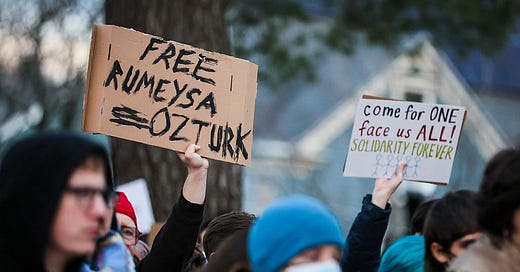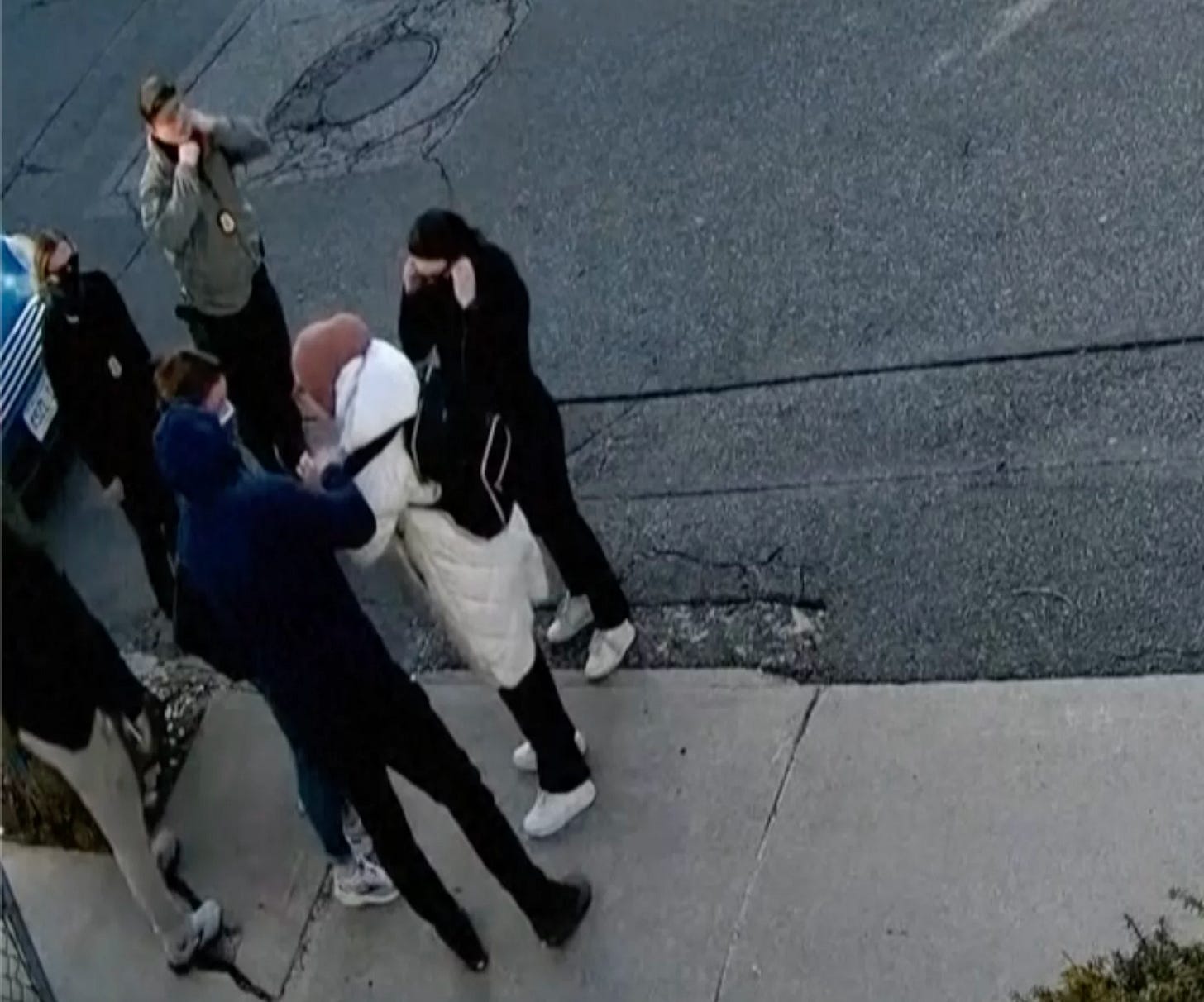
The Free Press

On March 25, Rumeysa Ozturk, a Turkish graduate student at Tufts, was arrested by a team of masked ICE agents on the street in Somerville, Massachusetts, and whisked away to a detention facility in Louisiana. Her crime, as far as could be determined at the time, was that in 2024, she co-authored an op-ed for The Tufts Daily that urged the university’s president to divest assets from Israel and assert that Israel’s defensive war against Hamas is a “genocide.”
That is about the only thing that the public knows about the Ozturk case. Is there more to the story? We asked the State Department.
A senior State Department official told us that “every individual who has had their visa recently revoked by this administration has displayed problematic behavior that would have made them ineligible for a visa if they would have disclosed this information during the vetting process.” This official went on to say that the administration is “now revoking their visa retroactively to ensure we are taking deliberate actions to protect our communities and campuses.”
That is in keeping with what the administration has publicly communicated about the case. The Department of Homeland Security has accused Ozturk, who is a PhD student and former Fulbright Scholar who came to the United States on a student visa, of providing support for Hamas. Specifically, it has said that she “engaged in activities in support of Hamas, a foreign terrorist organization that relishes the killing of Americans.”
But no branch of the federal government has provided any evidence to support that extraordinary claim. And what exactly qualifies, in the language the senior State Department official used with us, as “problematic behavior”?
Initially, the State Department asserted the right to cancel her visa and deport her without even going before a court. “Judges don’t issue student visas. There’s no right to a student visa,” said Secretary of State Marco Rubio on Thursday. But on Friday, a federal judge in Massachusetts ordered the government to present its evidence by Tuesday before Ozturk could be deported. Right now, she remains in detention in Louisiana, as does green card holder Mahmoud Khalil, a recent Columbia graduate and an anti-Israel activist who has now spent more than three weeks at an ICE facility awaiting a deportation hearing.
Civil libertarians on the political left and right have sounded the alarm. They argue that the administration’s actions are an unconstitutional assault on protected speech. As the Foundation for Individual Rights and Expression put it last month, “Jailing people for their political expression betrays America’s commitment to free speech.”
But do we even know that her arrest was ordered on the basis of her “political expression”?
No, because the federal government hasn’t made the facts of her case clear. Instead, they argue that this has nothing to do with freedom of speech. It is about America exercising its basic right to decide who we allow—and don’t allow—into the country.
On Thursday, Rubio put it this way: “If you apply for a visa to enter the United States and be a student and you tell us that the reason why you’re coming to the United States is not just because you want to write op-eds, but because you want to participate in movements that are involved in doing things like vandalizing universities, harassing students, taking over buildings, creating a ruckus, we’re not going to give you a visa.” He added: “If you lie to us and get a visa and then enter the United States and with that visa participate in that sort of activity, we’re going to take away your visa.”
What Rubio is saying here is common sense. In no universe should America—or any other sovereign nation—have to admit and host guests who violate its laws or seek its destruction. No one is entitled to a green card. And it’s the government’s prerogative to take it away.
The problem is that the administration attempted to bypass a critically important step—one that seems to us essential for basic public trust in the rule of law.
If the government wants to revoke the student visa or the green card of a permanent legal resident, as it did on March 8 with Mahmoud Khalil, then it should provide the evidence that these individuals engaged in the kind of antisocial and illegal activities Rubio claims. The protocol cannot be: This student is a national security threat—trust us.
But that is the kind of sloppiness that is typifying the Trump administration’s deportations thus far.
Just consider the fate of “Andry,” one of the alleged members of the Venezuelan criminal gang Tren de Aragua. He was deported to a Salvadoran prison last week and has lost contact with his attorneys. But his attorneys say the 31-year-old is a gay makeup artist seeking asylum in America because of his opposition to the government of Nicolás Maduro. The evidence that ICE used against him was apparently a “Mom” tattoo they said was “consistent” with gang activity. Now he is being held in one of the most notorious prisons on the planet because of a tattoo tribute to his parents.
This haphazard approach isn’t just bad politics, undermining confidence in the government’s immigration policy. It’s also a breach of a vitally important principle. Due process is not a privilege for the guilty. It is a protection for the innocent. It is a hedge against the prospect that sometimes the state gets it wrong.
It may turn out that Ozturk and Khalil have coordinated their activism with Hamas, or encouraged or participated in riots or other activities that are more than sufficient grounds to expel them from the country. But the government should present the specific evidence against them in a court of law and also—crucially—in the court of public opinion. In other words, the burden of proof is on the government, and they’ve so far failed to provide sufficient evidence to justify their actions.
It would be wise for the White House to clearly lay out the specific criteria by which foreign guests on student visas—and other permanent legal residents—may be deported going forward. Vague warnings about not “creating a ruckus” are not good enough.




